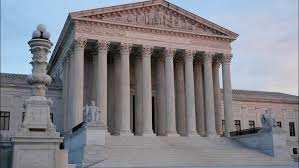Supreme Court Cuts Back Wire Fraud Prosecutions

In a pair of criminal cases , the U.S. Supreme Court delivered a one-two punch to the Justice Department’s prosecution of corruption cases based on violations of the criminal wire fraud statute. In Ciminelli v. U.S., and Percoco v. U.S., the Supreme Court reversed the convictions in two separate decisions relsasedd on the same day.
The Ciminelli and Percoco criminal cases were brought by the United States Attorney’s Office in Manhattan and targeted public corruption in Governor Cuomo’s Administration.
Ciminelli
In the Ciminelli case, the Court unanimously rejected the Second Circuit’s interpretation of the wire fraud statute to cover a scheme to deprive someone of valuable economic information needed to make economic decisions.
The case arose out of Gov. Cuomo’s “Buffalo Billion” initiative, which was a New York program to invest $1 billion in development projects in Buffalo, New York. Ciminelli, a Buffalo real estate developer, was convicted with three co-defendants, to rig bids bids for state contracts offered by the State University of New York by restricting the RFP qualification factors so that on Ciminelli’s company would qualify.
In prosecuting Ciminelli, the government argued that the federal wire fraud statute covered the right to control an intangible asset and that be restricting the information made available to the contracting entity, Ciminelli deprived the contracting entity of potentially valuable economic information.

The Supreme Court rejected the Second Circuit’s articulation of this theory of liability under the wire fraud statute. If upheld, the Supreme Court stated that this theory of liability would expand federal jurisdiction well beyond the logical meaning of the statute and criminalize almost every deceptive act.
Percoco
In the Percoco case, the Supreme Court overruled in another unanimous decision the lower court’s jury instructions explaining that a private citizen who has influence with government officials can be convicted for wire fraud based on the deprivation of the intangible right to honest services.
After leaving the Cuomo Administration to assist in the Governor’s re-election, Percoco was paid $35,000 from a real estate developer to assist in resolving a dispute with a state agency. Even though he was a private citizen during this interim time period he worked on the campaign, the government argued that he still owed a fiduciary duty to the public to deliver honest services because of his continued influence over government business.
The trial judge instructed the jury that Percoco owed a duty of honest services since he dominated and controlled government business. In a unanimous ruling, the Supreme Court reversed Percoco’s conviction on the wire fraud count and ruled that the wire fraud statue as applied was too vague. Justice Alito, who authored the opinion, explained that the standard could apply broadly to lobbyists and other well-connected individuals.

Justice Alito explained that it was difficult to define what “domination over government decisions” actually means – citing the impact of a longtime political adviser or falls under the influence of a private individual. As a result the Supreme Court concluded the definition of the “intangible right of honest services” was so vague that ordinary people could not understand what conduct is prohibited.
The Department of Justice acknowledged that the jury instructions were erroneous but argued that it was harmless error. The Supreme Court rejected DOJ’s argument that the conviction should be sustained because of two alternatives theories of liability.















